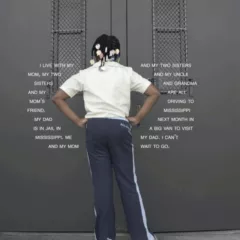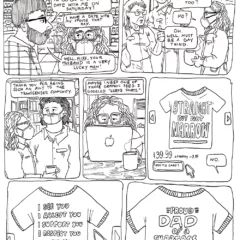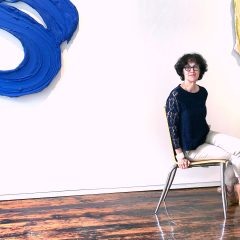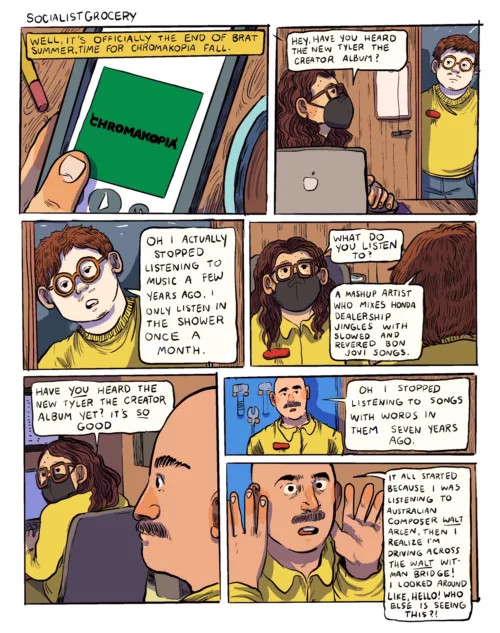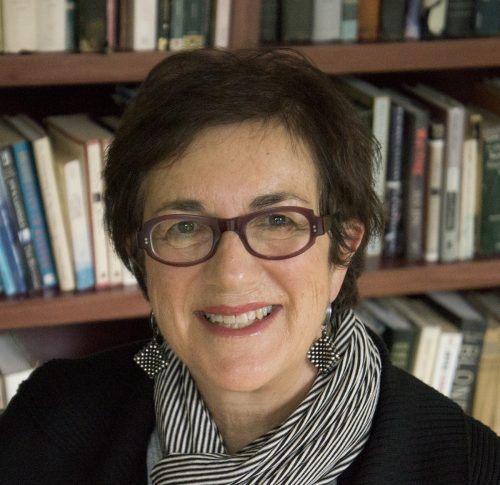
Artful humanism, a critical and personal tribute to Judy Gelles
by Martin Rosenberg, Professor Emeritus of Art History, Rutgers University
On March 14th, we suddenly lost Judy Gelles, an extraordinary artist and remarkable human being. Based in Philadelphia, Judy Gelles described herself as a “conceptual and photo-based artist using words and images to provide social commentary on who we are and how we think.” *She created many photographic projects, often enhanced with text, as well as award-winning films, installations, multi-media works, and artist’s books. She exhibited widely and received national and international recognition. As an art historian and curator, I became familiar with the range and depth of her work, exhibiting and writing about it and getting to know her over our fifteen-year relationship.
In a creative career of more than four decades, Judy Gelles attained substantial success and artistic recognition. Her work has been the focus of more than two dozen solo exhibitions and was included in dozens of juried and invited group exhibitions, as well as becoming a part of many major museum and private collections. She also received numerous grants, awards, and residencies, and extensive critical praise. As I became more familiar with the range, depth, and significance of her work, all these tributes to this highly-original and important artist seemed only fitting.
“With photography everything is so ordinary; it takes a lot of looking to learn to capture the extraordinary. Judy had the great ability to see the extraordinary in the ordinary, the magic in the mundane. In her photographs, she communicated the facts, touched the heart and left the viewer a changed person. She is among the many great artists who have changed the way we think about social issues, family and even art itself.”
– Judy Gelles’s Gallerist Christine Pfister, Owner/Director, Pentimenti Gallery, Philadelphia, PA.
Born in 1944, into one of the only Jewish families in a small New Hampshire town, she had limited exposure to art and culture growing up and felt she never really fit in.**Judy was an early member of the baby boom generation that lived through and participated in many sweeping social changes, including the rise of the feminist movement. However, she grew up in the 1950’s, when girls were generally socialized, by their parents and by society, to focus on marriage and family, rather than professional aspirations. Like so many young women of her generation, she followed a socially-accepted path, becoming first a teacher, and then, a school counselor, marrying Richard Gelles, a social scientist embarking on his academic career, and having two children, for whom she provided primary care.
Fortunately for her and all of us, Judy Gelles took her first course in photography at a local college in 1977, at the age of 32, ostensibly “to learn to take the perfect baby picture,” but this experience would prove to be a major turning point for her. Photography provided her with the necessary creative vehicle to express her personal vision of, and deep curiosity about the social and cultural dimensions of people’s lives and relationships, in all their variety, and complexities. Eventually, she pursued further formal study, receiving her MFA in Photography from RISD in 1991. Years later, she described herself as “having long been caught up in the nexus of feminism, motherhood, finding a career, and developing as an artist.” In her own words, she had undertaken a “determined and obsessive thirty-year exploration of these issues, providing social commentary on who we are, and how we think, in this socially-organized world.”
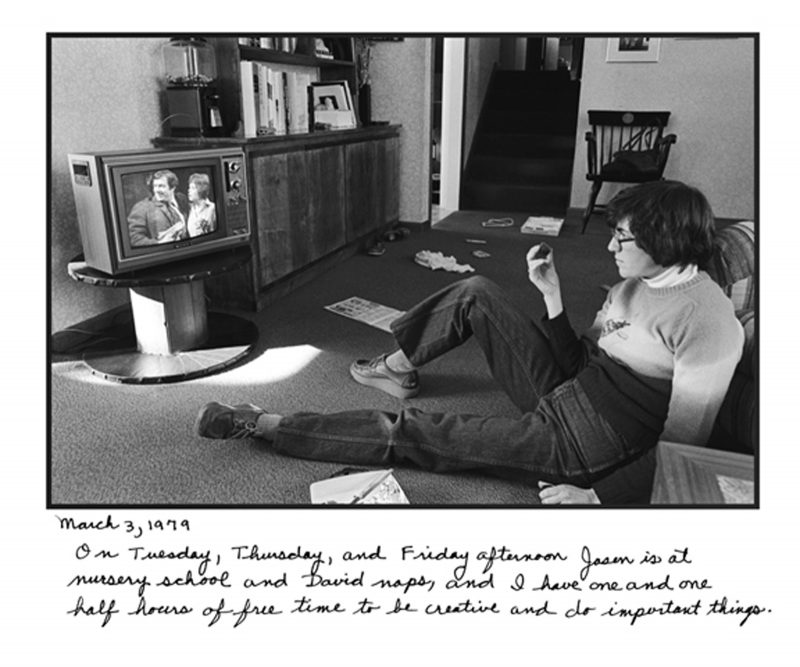
Exploration of these social aspects of life, often viewed through the lens of her personal relationships and experiences, would form a major focus of her artistic practice for decades, beginning with her first sustained artistic project “Family Portraits 1977-82.” Though these works initially appear to be a series of snapshots, through these carefully-constructed images, enhanced by hand-written texts purporting to reveal the artist’s inner thoughts, she represents the messy realities of her daily life as a wife and mother of small children at home. In this highly-original series, Judy deconstructs the idealized view of the role of wife and mother promulgated in the fifties. A favorite image from this series is the one illustrated here: “Self-Portrait Watching TV” (1979), which shows Judy, in the midst of household debris, eating and zoned out in front of a soap opera on TV. With characteristic honest self-scrutiny and sense of irony, she reveals, through the caption she appends, that her domestic duties leave her one-and-a half hours, three times a week “to do something creative and important.” Like so much of her work, its basis is her personal experience conveyed with candor and humor, but it also raises a larger issue–the difficulties that so many women have faced in balancing professional aspirations with domestic responsibilities.
Although the aesthetic dimensions of her work are extremely important, she was rarely content merely to document appearances. Judy often sets her images within conceptual structures, utilizing a combination of image and text to comment on larger social and cultural issues. These include: identity and self-image, gender difference and socialization, relationships within and beyond the family, and people’s interior lives and personal realities, among others. Given the limitations of a short article, I will focus on some of Judy Gelles’ lesser-known work, examples of which can all be viewed at her website http://judygelles.com/.
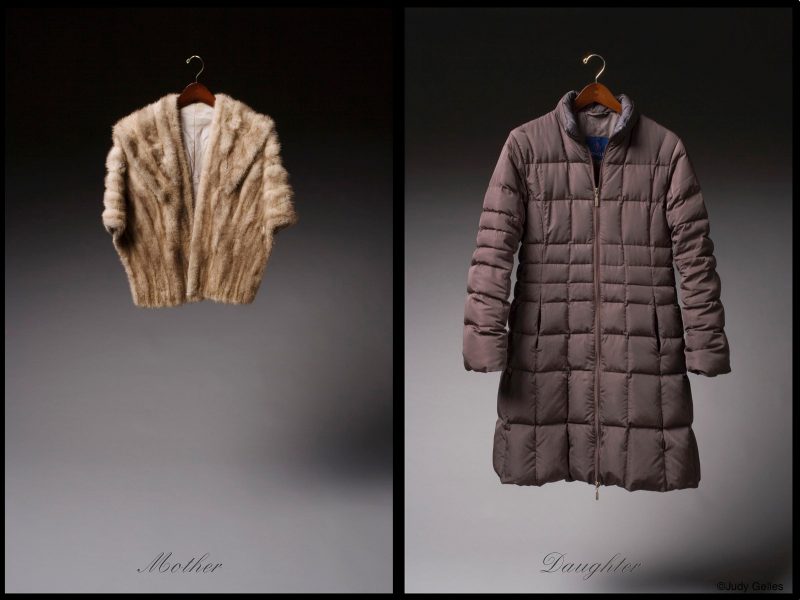
Judy explored these issues in several series, focusing on her family as a kind of social microcosm. In her series “Family Ties: Three Generations,” she presented images of pairs of similar types of commonplace objects, each belonging to one of three generations of Judy’s family. These simple “family artifacts” provide social commentary relating to gender difference, continuity and change between generations, and cultural values. “Mother Son,” pairs photos of her, and ones of her older son Jason, each from age six, to age eighteen. The triptych form, with interwoven text between the images, explores their widely different experiences and self-images at each age, revealing (in Judy’s words) “the subtly significant and significantly subtle ways we are taught to be male and female in our culture.” Another rich project is the “Florida Family Portraits 1982-2014.” In each image, Judy’s parents, husband, and children are shown in typical family portrait poses, behind Judy’s parents trailer home. These group portraits, taken each year during the family’s visits to see her parents, became a “Family tradition,” documenting the evolution of Judy’s family over many years, but they are much more than that. Like Nicolas Nixon’s series of “The Brown Sisters,” Judy’s work not only reveals the inevitable impact of the passage of the years, as each family member changes over time, but also the growth, and maturing, of children, the aging of parents and grandparents, and the pain of loss, experiences common to so many of us.
This brings us to at least a brief consideration of Judy Gelles’ most ambitious and far-reaching work: “The Fourth Grade Project.” ***What began as an outgrowth of a volunteer project by her synagogue, to help improve reading skills of disadvantaged Philadelphia fourth graders in a public school, became an international project which occupied Judy for most of the last decade of her life, producing an unprecedented body of work that deserves its own extensive discussion. Here is a brief description: “Over the past decade Judy Gelles has interviewed and photographed more than 300 fourth grade students from a wide range of economic and cultural backgrounds in China, Dubai, England, India, Israel, Italy, Nicaragua, St. Lucia, South Africa, South Korea, and multiple areas of the United States. She asked all of the students the same three questions: Who do you live with? What do you wish for? What do you worry about? The Fourth Grade Project connects children locally and globally, building bridges and tearing down walls.”
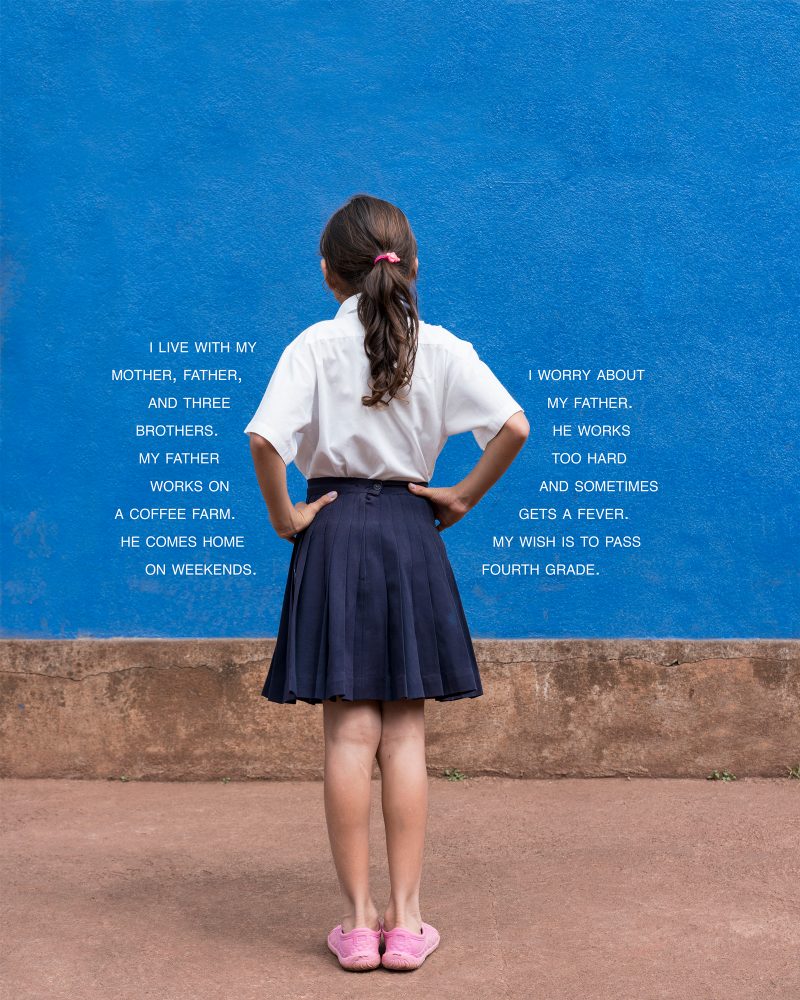
*All quotes regarding Judy’s work are in her words, taken from artist statements, her website, and her publications.
**I wish to express my appreciation to David Gelles, son of Judy and Richard, who filled in some biographical details and provided several of the images accompanying this article.
***For the “Fourth Grade Project,” see https://www.judygelles.com/fourth-grade-project. which provides access to Judy Gelles’ TEDX talk on the project. An exhibition of 72 worksd from the project will tour nationally, from 2020-2025, under the auspices of Exhibits USA. See: https://eusa.org/exhibition/fourth-grade-project/ For the related Curriculum Project, see https://fourthgradeproject.com/
For more information see: judygelles.com, https://www.pentimenti.com/judy-gelles, https://www.theartblog.org/2013/02/judy-gelles-and-the-candor-of-children-at-pentimenti/
For another memorial tribute, see: http://lenscratch.com/2020/03/judy-gelles-2/
Bio
Martin Rosenberg is Professor Emeritus of Art History, and former Chair of the Department of Fine Arts at Rutgers-Camden, where he taught a wide variety of courses in 18th-21st century European and American Art, and Modern Architecture. As a feminist scholar he has devoted much of his teaching, research, curatorial work, and publication to enhancing the understanding of women’s contributions to art and culture. He is the author of several books and major exhibition catalogs, as well as numerous articles, catalog essays, and reviews, and has lectured widely in the United States, Europe, and China. He holds a BS in Chemistry from MIT, and MA and PhD degrees in Art History from the University of Pennsylvania. He and his co-curator Susan Isaacs included Judy Gelles as one of sixteen select artists in their exhibition “A Complex Weave: Women and Identity in Contemporary Art,” which toured nationwide from 2009-2013.


